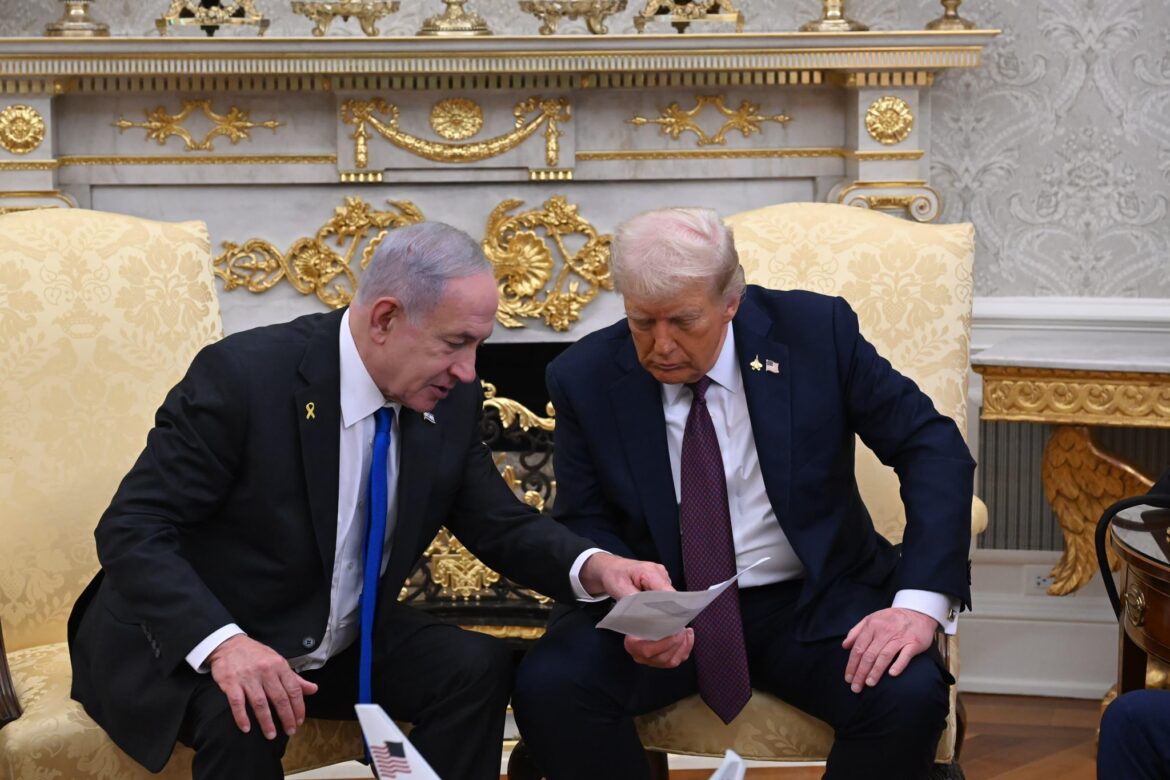A peace plan with all the accompanying fanfare has been rolled out in Washington, with key participants, U.S. President Donald Trump and Israeli Prime Minister Benjamin Netanyahu, stressing, and perhaps rightfully so, that this 20-point proposal cannot be taken lightly.
In the short-term perspective, the plan speaks of a timeline for the return of Israeli hostages in exchange for Palestinian prisoners seeking freedom; the complete disarming of the terror outfit Hamas in return for amnesty and/or safe passage to any country of their choice—that is, whichever capital would want or agree to host them.
And in a longer-term perspective, the economic and political development of that small strip of land will be led by President Trump and former Prime Minister of Britain Tony Blair. It is no small achievement that President Trump has pulled off with a defiant Israeli Prime Minister who has slowly realized that the current occupant of the White House is quite different in form and style from his predecessor, Joe Biden.
And the big relief is that many or all Arab capitals have welcomed the latest plan, not because of a belief that something is better than nothing, but more in the realization that it is time to end a sad chapter in their neighborhood that was showing signs of spilling into their borders. Finally, the realization of a Palestinian state in a framework that has been talked about for quite some time now.
Rightfully, the point is made that all eyes are on Hamas, which has been made amply clear that there is literally no place for them, especially holding on to their military gear. More than the leadership agreeing to the terms envisaged, Israel will be careful to ensure that the hardcore terrorists do not embed themselves in the population as they have done so successfully in the past, resulting in continual Israeli bombardments leading to massive civilian casualties. The fact that Hamas very well operated out of hospitals, had tunnels in their compounds, or had allegedly hidden hostages on the premises only added to the misery of the common folks.
After the initial impression that all parties, including Hamas, had agreed to the proposals, President Trump has now given the terror outfit three to four days to come around or face “hell.” If the last two traumatic years are anything to go by, this “hell” will be borne by ordinary civilians who would have to bear the brunt of any combined Washington–Tel Aviv onslaught in the name of clearing the last remnants of a deadly group whose depravity on October 7, 2023, started the mess. In fact, one of the key aspects of the peace plan is that Gaza will be fully demilitarized, which will see the destruction of all offensive infrastructure including tunnels and weapons-building facilities, supervised by independent monitors. Further, Hamas or any of its factions will have no role in the governance of Gaza, directly or indirectly.
Undoubtedly, President Trump has put together a delicate plan that would require all parties to play their roles honestly and diligently and not look for flimsy excuses to get out of the process. With all the collective intelligence available, it is not quite clear how many Israeli hostages are indeed alive, even if provisions have been made in the accord for the return of remains. And this would seem to be the first obstacle.
The bigger problem would arise for neighboring Arab states should any member of Hamas seek to cross the borders and settle down. Israel will undoubtedly continue to keep a close watch on any member of an outfit it has classified as “terrorist,” even if the weapons had been laid down in Gaza. In the eyes of Tel Aviv, outfits like Hamas and Hezbollah will always be suspect, irrespective of who supervises them. And Israel is bound to insist on a say in the composition of the temporary International Stabilization Force in Gaza that Washington will be working on with its Arab and international partners.
It is not just Hamas, but apparently many Arab leaders and states wish to see the finer details of the 20-point plan that has just been unveiled. For that matter, a lot of questions remain for the Gazans themselves on the role of the present Palestinian Authority in future governance. Under the present scheme, Gaza will be governed by a “temporary transitional governance of a technocratic, apolitical Palestinian committee” that would oversee the running of public services.
This Committee will function with oversight and supervision of a “Board of Peace” under the chairmanship of President Trump and other members and heads of state who are to be announced, including Tony Blair. And this Committee will function until such time as the Palestinian Authority has completed its “reform program.”
Critics and skeptics have already started voicing apprehensions of the plan, starting with why a person like Blair should be involved in the process. Aside from Blair’s enthusiastic backing for the Iraq War of George W. Bush, his characterizations of Islamic extremism and possible conflict of interest in the economic development of Gaza are already being flagged. Writing in The Guardian, Peter Beaumont says, “Blair’s role as an architect of the Good Friday Agreement ending the Troubles in Northern Ireland is much mentioned, but his track record in the Middle East is far more controversial.” All this is just for starters!
Disclaimer: The opinions and views expressed in this article/column are those of the author(s) and do not necessarily reflect the views or positions of South Asian Herald.






